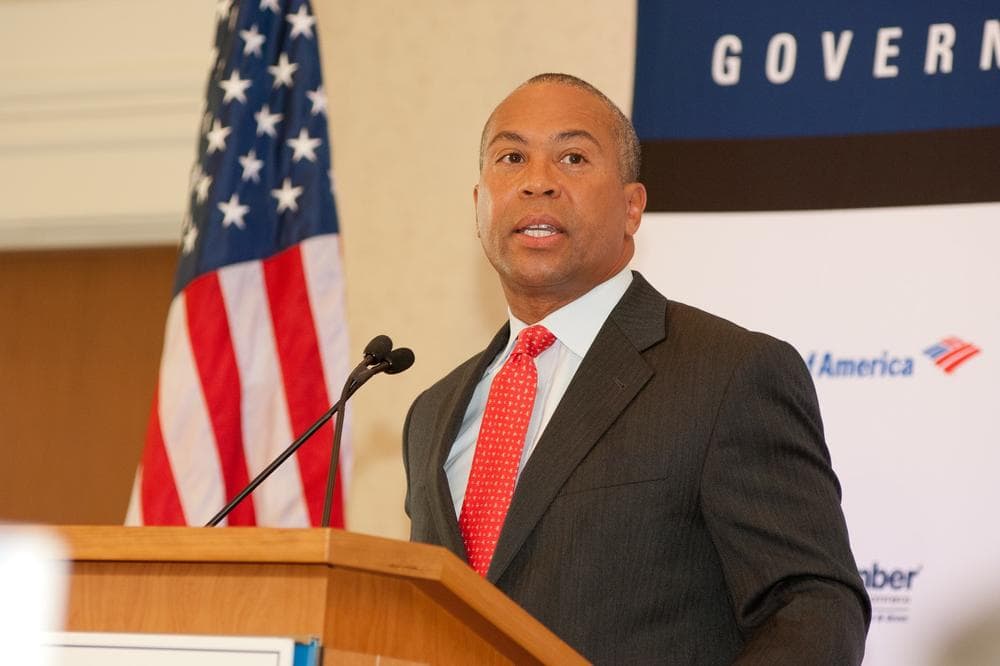Advertisement
Deval Patrick On Health Reform: Not Persuaded Hospital 'Luxury Tax' Needed

Gov. Deval Patrick spoke on health reform today at MIT's Sloan School of Management, and acknowledged with lovely candor afterward that he pretty much repeated what he'd said earlier this week at the Chamber of Commerce. But the moment offered a brief chance to try to clarify a bit further what WBUR's Martha Bebinger wrote about yesterday: That the governor says that the attorney general already has the tools to address a problem that Martha described with excellent punch: "What to do about hospitals that charge three, four or five times more for an MRI (and hundreds of other services) with little or no difference in quality."
I asked the governor today about such price disparities. Our conversation:
You’re talking about the differences between what some of the downtown medical centers and the community hospitals charge for similar — I would say similar and routine procedures. And that’s a concern. Now some of that is addressed by greater transparency and making sure that people know what the charges are.
[module align="right" width="half" type="pull-quote"]On the hospital 'luxury tax': 'I haven’t been persuaded yet that that’s something we need.'[/module]
Of course, I point out I had a hip replaced a few years ago and you could go online and see the difference between what the cost of that hip replacement would be at a community hospital or the downtown medical center where I had it done. but in either case my co-pay was 100 bucks; so --
no skin. [My reference to the annoying health-policy phrase that it is hard to control costs when patients have "no skin in the game" financially.]
No skin. So I think transparency is a part of the solution but we also have to think about how it is we encourage people to make more economic decisions.
What about the role of government?
I think there is a role of government. That's all part of this soup we’re working on right now, right? What are the different elements...I don’t think we have to do it through price control. I know that’s a debate out there, but personally I don’t think we have to do it through price control. I don’t think we have to because we have so many well-intended participants in this market who get that we have to make this whole thing work.
Or the kind of surcharge in the House bill? [The House health reform bill proposes a 10% tax on hospitals whose prices are 20% above the median for services.]
You’re talking about the luxury thing — I think that’s what they call it, the luxury — I haven’t been persuaded yet that that’s something we need. Now, as I said at the Chamber and I’ll say it again, the Attorney General has tools to address market power, and I expect that she will use them.
End of conversation. Hmmm. I'm not sure Attorney General Martha Coakley, who has repeatedly called attention to the problem of hospitals charging higher prices because they have the market clout to get away with it, actually agrees that her tools suffice. Martha Bebinger posted a statement from Coakley's office that included this:
While it is true that our office has law enforcement tools at our disposal, law enforcement is just one of many mechanisms that must be used to ensure a competitive marketplace. There are many actions that may not rise to the level of an anti-trust violation, for instance, but that still may not be in the best interest of a healthy market. We believe a better mechanism should be in place – one that better tracks data about market consolidation to identify problems early and then is able to act on that data short of involvement by law enforcement.”
This program aired on May 18, 2012. The audio for this program is not available.
